Topics
- active learning (18)
- research assignments (6)
- libraries (1)
- literature-based learning (2)
- multimedia (5)
- museums (6)
- object learning (7)
- online learning (5)
- peer instruction (10)
- storytelling (2)
- learning management system (2)
- syllabus design (3)
- teaching empathy (3)
- teaching fellows (1)
- lecture (3)
- learning goals (8)
- assessment (6)
- data (3)
- backward design (3)
- blended approaches (12)
- case-based learning (8)
- classroom contracts (7)
- classrooms and space (3)
- collaborative learning (27)
- community events (1)
- course transformation (7)
- devices (3)
- learning by making (5)
- discussion (24)
- engaged scholarship (4)
- experiential learning (16)
- feedback (18)
- group work (8)
- guest speakers (7)
- interdisciplinary (6)
- leadership (3)
Send feedback
Subscribe
Copyright © 2024 The President and Fellows of Harvard College | Privacy | Accessibility | Digital Accessibility | Report Copyright Infringement

 Rebecca Nesson, Dean for Academic Programs, SEAS, and Charles R. Nesson, William F. Weld Professor of Law at Harvard Law School, Founder of the Berkman Klein Center for Internet & Society, and Principal Investigator of BKC’s
Rebecca Nesson, Dean for Academic Programs, SEAS, and Charles R. Nesson, William F. Weld Professor of Law at Harvard Law School, Founder of the Berkman Klein Center for Internet & Society, and Principal Investigator of BKC’s 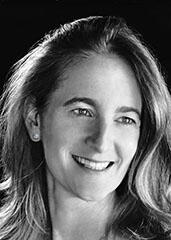 Candace Bertotti,
Candace Bertotti, 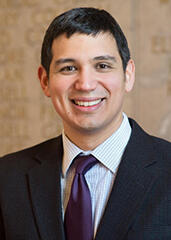 Matthew Potts, Plummer Professor of Christian Morals and the Pusey Minister in the Memorial Church, teaches
Matthew Potts, Plummer Professor of Christian Morals and the Pusey Minister in the Memorial Church, teaches 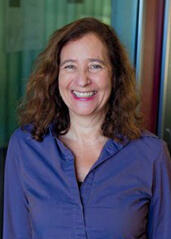 Elisa New, Powell M. Cabot Professor of American Literature, has ample experience blending asynchronous and synchronous learning to teach
Elisa New, Powell M. Cabot Professor of American Literature, has ample experience blending asynchronous and synchronous learning to teach 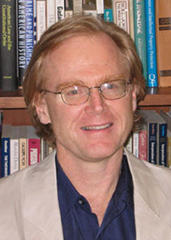 When William Fisher, WilmerHale Professor of Intellectual Property Law, was approached to create an online course version of his Harvard Law School
When William Fisher, WilmerHale Professor of Intellectual Property Law, was approached to create an online course version of his Harvard Law School 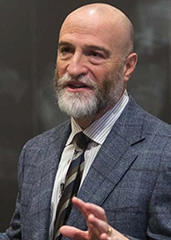 In his general education courses, Jay Harris, Harry Austryn Wolfson Professor of Jewish Studies, posts two different videos prior to class for students to view: pre-reading videos contextualize and provide guidance for the week’s readings, and lecture videos replace Harris’s in-class...
In his general education courses, Jay Harris, Harry Austryn Wolfson Professor of Jewish Studies, posts two different videos prior to class for students to view: pre-reading videos contextualize and provide guidance for the week’s readings, and lecture videos replace Harris’s in-class...